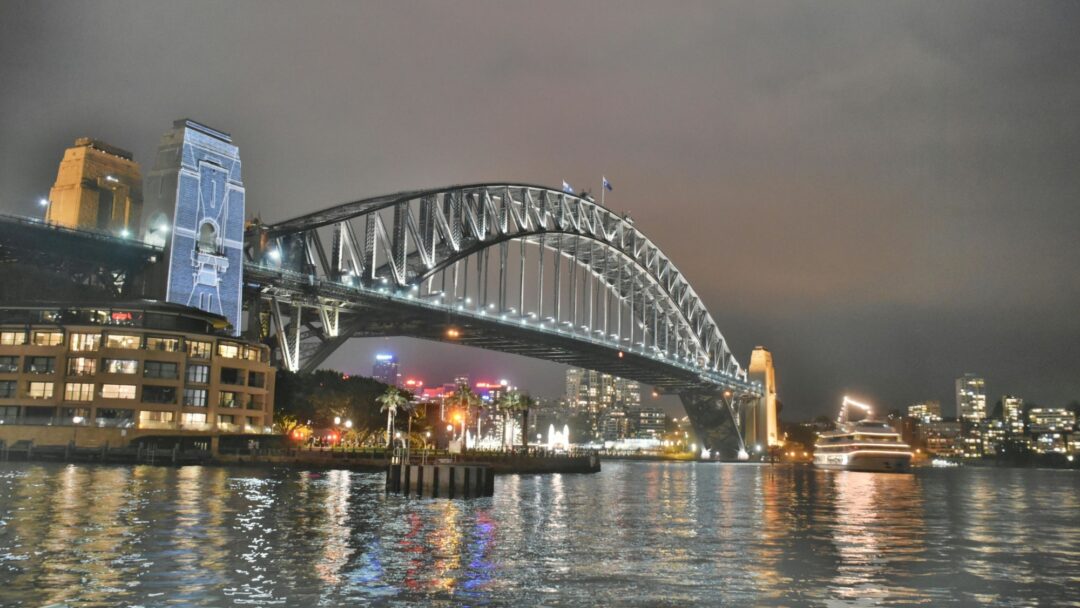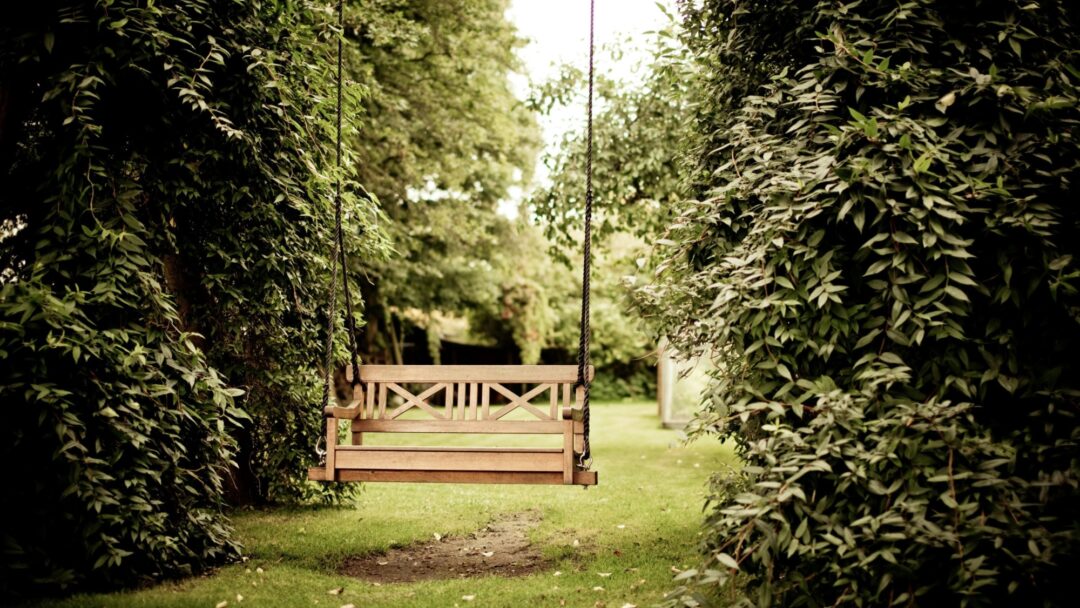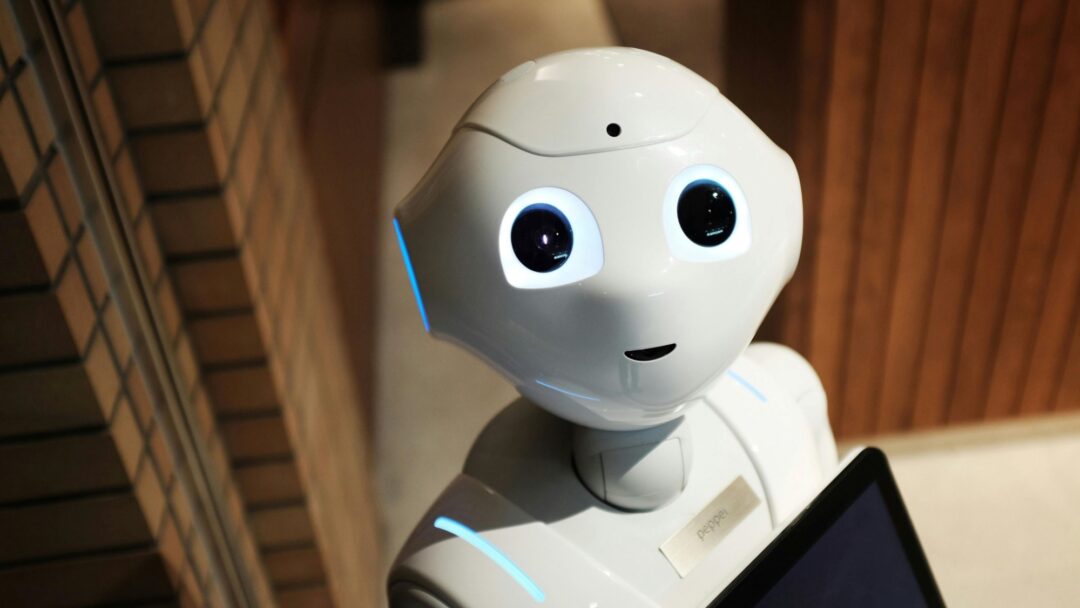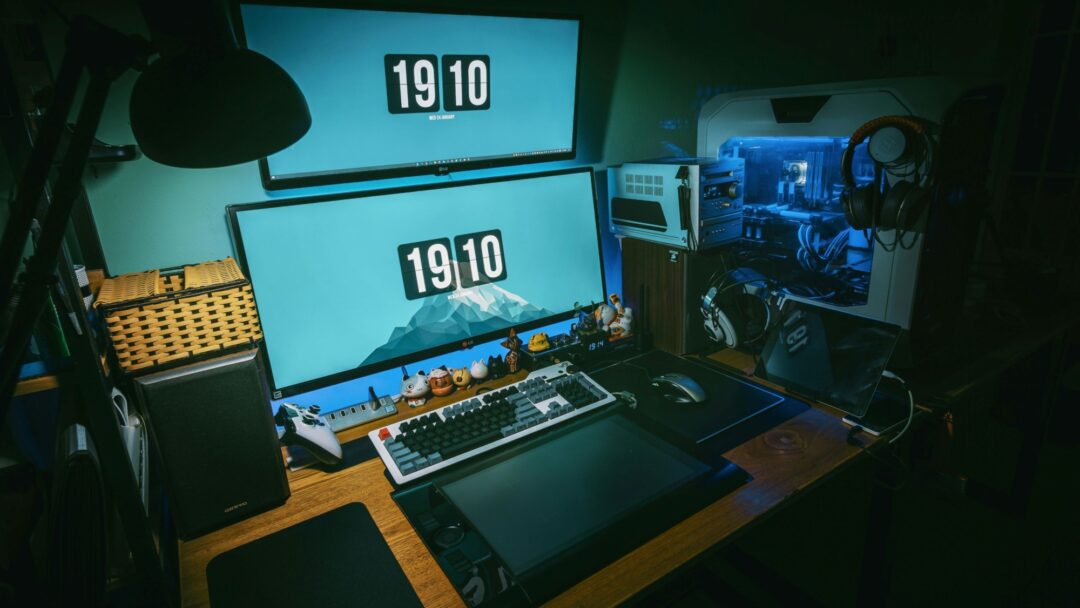Audio
Serena Ovens - Assistive Technology Supplies Australia
Ablequest by
2RPH3 seasons
14 mins
Ablequest features an interview with Serena Ovens, new CEO of Assistive Technology Supplies Australia or "ATSA".

This episode contains an interview with Serena Ovens, the new CEO of Assistive Technology Supplies Australia, known as ATSA. Elaine Wziontek talks to her about her role and what she hopes to achieve.
Original broadcast date: 07.09.23
Speaker 1 00:03
With information on the latest developments in assistive technology and initiatives from the studios of two RPH in Sydney. RPH Australia brings you Ablequest.
Speaker 2 00:22
Hello, I'm Mani Roper. Today's guest is Serena Ovens, the new CEO of Assistive Technology Suppliers Australia. Known as ATSA, this organisation works to ensure assistive technology is competitive, efficient and regulated, supporting an industry which increases independence for people living with disability, seniors, their families and carers. Serena is new to the role, but not to disability and advocacy, having been for twelve years at the helm of the Physical Disability Council of New South Wales, a former teacher, ski guide and keen photographer with a special interest in disability sport. Having photographed paralympic wheelchair athletes, Elaine Jauntek spoke to her about the role and what she hopes to achieve.
Speaker 3 01:11
Welcome, Serena. Congratulations on your new role as CEO. It's a big job representing assistive technology suppliers in Australia, the manufacturers, service providers and individuals. Is this a natural career progression for you? As the CEO of the Physical Disability Council of New South Wales, I think.
Speaker 4 01:34
It'S an extension of that slightly different. ATSA is once again a peak body and a member based organisation still working in the disability and aged care fields, but from a slightly different perspective. So as the CEO of the Physical Disability Council, my focus was particularly directly on people living with physical disabilities and only in New South Wales. Whereas this is now a national role. Our organisation is still a charity, we're still very much focused on the end user, people with disability, but also others in older persons and age care. But we're looking at how they ensure that they get fair and equitable supply of any sorts of assistive technology that they might need to live valued, independent lives, and particularly to keep people at home for as long as possible.
Speaker 5 02:26
Independence is very important, isn't it?
Speaker 4 02:29
Absolutely. Everyone wants to be independent, to be able to get around and do whatever they need to do on a day to day basis, socialising with friends or going to work, school education. If they need technology or supports or physical equipment to help them, it's really important that we ensure that they are able to access that when they need it.
Speaker 5 02:51
So what do you hope to achieve in this role?
Speaker 4 02:53
This organisation is one that was built by people with disability who were in the sector and saw a need to develop a really good body that could support what was quite a new and innovative sector. It's twelve or so years on, it's now a really big sector, it caters for many, many different types of assistive technology and so for me it's about continuing on what's been done, but looking at how we can do things differently, how we can manage the changes that we're seeing coming in the NDIs and the aged care sectors, but also what else might be needed? Can we provide better education, both for people that want to come and work and be technicians, suppliers, ots, et cetera, within the assistive technology area? And also, what do people with disability, older people, anyone that needs this technology, what do they need in the way of good education to know they're getting the right product at the right time and the best service price, et cetera.
Speaker 5 03:53
So I understand you've got a background.
Speaker 4 03:55
In teaching in Victoria. So how did you become interested in the disability sector? I moved from Melbourne, which was originally my home, to Western Australia, with my partner at the time, who was actually a naval officer. And then we moved from Western Australia to Sydney and I was looking for a bit of a change. I loved teaching, but I was getting tired of doing long term relief positions, which often happens when you have to move at a moment's notice when you're the defence forces. And I'd been doing some photography, of all things, with a gentleman in Perth and that led to me deciding that I'd really like to continue that and move out of the teaching area. Just by coincidence, we spoke to some organisations in New South Wales that were disability sports organisations.
Sport is something that I love doing, I've always been involved in and that took me into organisations saying, great, we need photography, we really need to showcase disability sport, but we can't afford to do it. And from there I actually built up a business that helped organisations by developing a fundraising calendar that they could use to bring money into their organisations very quickly. Immersed in a lot of the disability sector through that lens. As an initial startup, for many years I developed a photographic business specialising. Disability sports have been very, very lucky to spend a lot of time travelling and delivering photography for International Paralympic Committee, for the Australian Paralympic Committee and many different disability organisations and attended Paralympic Games here. As a photographer in the disability sport, some of the athletes that I was photographing had become friends. They dragged me into their sector helping event manage a really big international event that we run in Sydney on Australia Day every year called the Os day ten k. And the series itself is the summer down under series, so it's moved me into the disability sphere in a light on way.
But it's something that I've really loved and enjoy. I have many friends here and when the opportunity came up to step into the role at the school disability councillor was something that I jumped at and to be honest, I was absolutely thrilled to be able to have that experience and step in as their CEO and look at disability from a broader aspect. I am very much a person who has both family members and friends with disability, and I've learned through many, many years of my contact and assisting in sports programmes, working in that space as a photographer and as a very close friend to understand more broadly what people with disability need. And unfortunately, my father is quite elderly now and also experiencing a lot of that age related disability. And that's also led me to sadly gain a very big understanding of what the aged care system is like and how that needs to support people and how they go about gaining what they need through that system, including technologies as well.
Speaker 5 06:59
You've been involved a bit last month or so with the expos, the independent living expos. Can you tell us about that experience?
Speaker 4 07:06
Yeah, so one of the big things that ATSA do is run expos around the country that allow both people with disability, older people, and the people that actually script and supply technologies, people like occupational therapists, physiotherapists and others, come together with all the suppliers of that technology. So they're really big expos that run over a couple of days. People can come along, they can cheque out the technology, they can use it, they can talk to the manufacturers, the distributors, the suppliers. They can get a really good hands on feel for what's out in the market, what might suit them. There's a huge range of things like wheelchairs, manual wheelchairs, or power chairs, or then scooters.
Then you've got all the different devices that can be as simple as something, that is a knife, that helps people who have disabilities actually still independently cut their food, but not put them at risk of cutting themselves. It can be scanning pens that allow people that might have dyslexia, which is a form of disability, as well, to read documents and to be able to translate them too. So many different devices on the market that you'll never find them all in one place. But the expos are a great place to start and give you that face to face contact with people that can talk you through what they are, how they work, whether it might be right for you, or go to the next stand and find the next thing that might be a better fit or a better style, or something that suits your needs more appropriately.
Speaker 3 08:41
So you're starting to get excited about the new technology.
Speaker 4 08:44
I think there are so many things to be excited about in this area, the technology market, the it, and of course, the things that we're seeing now, right up to exoskeletons that allow people to walk where they haven't been able to before. There is so much out there that just is mind blowing in some respects that can just change people's lives so dramatically, but also allow them that independence that for some people, they may not have in their lifetime.
Speaker 5 09:14
When I was perusing your newsletter, I noticed another thing called brain fingers. I think it helps people with physical disabilities control computers.
Speaker 4 09:24
I'm very new into the market, and I haven't seen every single thing that's going, but there are some exceptional devices out there, and you're absolutely right. Things that can allow people who maybe can't even use their hands to use their eye gaze technology to open doors, to read or use computers. The amazing technology that we can put through our homes that would allow someone who might have a very high level of disability that can't actually physically use their hands to operate their homes and therefore be able to stay in them without someone else there to assist them with those physical challenges, like opening a door or turning on lights, setting up a heater. So empowering. And it may not be that that computer literacy scenario will not be as capable on a computer as the next person. Different things that you might need.
So as we age, we know that we're not as stable. Some of us need just simple things like grab bales in bathrooms or a shower chair to allow us to sit down, but still be independent. It might be that you just need a mobility scooter to help you get from place to place when you may not be able to drive or walk long distances. All of these devices and the breadth and depth of them is huge, can assist you to stay at home, and there's great savings to be had there. Obviously, if we can stay in our home, it's a far less cost than having to be in care, and it's often far nicer, too.
Speaker 5 10:54
So, Serena, you've entered this role at a turbulent time with cost cutting and reforms going on in my aged care and the NDIs. Do you have concerns about the challenges ahead for businesses and clients with funding limits and the new cost cutting policies?
Speaker 4 11:10
Very much so. I think everyone wants to do the right thing. The NDIS reform in particular is about saying, we still need this to be in place and we need it to work, and we need it to work in the longer term. But, of course, what we don't want is that panic scenario of people saying, the easiest way to do this is to stop allowing others to have something that might be necessary because it costs a lot of money. So I think it's really important that when we're looking at this review, that we look at what is value for money, but also what is important. So what does someone need to be able to have an outcome? If that outcome or goal is to be independent and they need a scripted wheelchair, that might be $30,000. That could well be money well spent. So I don't want to see absolute caps of a set limit that can't be breached or looked at in an independent, individualised process. And we don't want to see equally people doing the wrong thing.
So our role as an organisation is to ensure that our members are absolutely acting equitably and ensuring that they're being fair, that they're competitive, but that they're also abiding by the rules and ensuring that they're offering best value for money, too. So it's getting that balance and making sure that things work well. We are, of course, talking to both the NDIs and working with the new aged care reforms and submitting to them our concerns and where we think that we can add value and work with the reforms to ensure that there's a really good, well informed, well funded market that allows people to have good choice and ensure that they get the most appropriate device for them, and that it's not just about ticking a box or meeting a set cost, that it is absolutely funded as appropriately needed for that individual.
So we want to ensure that there's a robust market and that we're not actually cutting out people who do a really good job just because they might not be the biggest or that they might not be set up in the way that the NDI needs them to be set up in order to tick every box. So it really is important that we work together with these big reforms and ensure that they have a robust market that is able to support everybody in all areas.
Speaker 5 13:41
Sounds like a very collaborative approach. Where can people find out more about ADSA?
Speaker 4 13:47
Easiest place to go is to our website, which is www.atsa.org au, and they can find out more about what we do as an.
Speaker 5 13:59
Well, thank you very much, Serena, it's been lovely to talk to you.
Speaker 4 14:03
You're welcome. Thanks so much for your time.
Speaker 5 14:05
Elaine, that was Serena Ovens, CEO of at.
Speaker 1 14:19
You have just been listening to Ablequest, a program that looks at developments in assistive technology. Thank you for listening and goodbye till next program.
Continue listening

Blind Sports Australia CEO Matt Clayton speaks about its work with blind and vision impaired athletes across 21 sports.
Matt Clayton - Blind Sports Australia
Ablequest by 2RPH
5/5/2023
•13 mins
Audio

Vivid, Sydney's celebration of creativity, seen from a disability access focus by its director.
Gill Minervini - Vivid
Ablequest by 2RPH
19/5/2023
•14 mins
Audio

This program discusses dance movement therapy and how it works - featuring Cecilia King of the Dance Therapy Association.
Cecilia King - Dance Therapy
Ablequest by 2RPH
14 mins
Audio

What are the challenges of providing audio description on Oz TV? Hear Lauren Henley, Aust Federation of Disability Organisations.
Lauren Henley - Audio Description
Ablequest by 2RPH
16/6/2023
•14 mins
Audio

In Part 1 of a 2RPH interview, assistive tech expert David Woodbridge explores latest innovations to make everyday life easier.
David Woodbridge - Tech Update Part 1
Ablequest by 2RPH
30/6/2023
•14 mins
Audio

Features Robert Duff-Silsby of Luddi, Perth company developing assistive devices for all people and bodies.
Robert Duff-Silsby - Sexual Wellbeing
Ablequest by 2RPH
13 mins
Audio

In Part 2 of this conversation with 2RPH's Ablequest, expert David Woodbridge reviews latest assistive technologies.
David Woodbridge - Tech Update Part 2
Ablequest by 2RPH
28/7/2023
•14 mins
Audio

Matt Clayton of Blind Sports Australia and the Oz team's Chef de Mission, discusses the forthcoming World Blind Games in the UK.
Matt Clayton - World Blind Games
Ablequest by 2RPH
11/8/2023
•13 mins
Audio

Prof Kim Marriott of the Monash Assistive Technology and Society Centre, talks about the purpose and work of the Centre.
Kim Marriott - Monash Assistive Technology and Society Centre
Ablequest by 2RPH
25/8/2023
•13 mins
Audio

Ablequest features an interview with Serena Ovens, new CEO of Assistive Technology Supplies Australia or "ATSA".
Serena Ovens - Assistive Technology Supplies Australia
Ablequest by 2RPH
14 mins
Audio

Part 1 of an interview on the voice-activated app, Bindi Maps.
Anna Wright - Bindi Maps (Part 1)
Ablequest by 2RPH
14 mins
Audio

This is Part 2 of an interview with Dr Anna Wright, explaining how Bindi Maps works.
Anna Wright - Bindi Maps (Part 2)
Ablequest by 2RPH
14 mins
Audio

Artist Ebony Wightman of disability-led We Are Studios talks about art and challenge.
Ebony Wightman - We Are Studios
Ablequest by 2RPH
20/10/2023
•13 mins
Audio

Prof. Leeanne Carey discusses the SENSe program, her team's world-first therapy to help stroke survivors.
Leeanne Carey - SENSe Therapy
Ablequest by 2RPH
2/11/2023
•13 mins
Audio

Youthworks Accessibility Minister Bec Baines talks of making church accessible to young people with disabilities.
Bec Baines - Youth and Worship
Ablequest by 2RPH
16/11/2023
•14 mins
Audio

Nikki Hind, Australia's first blind fashion designer, discusses her work.
Nikki Hind: Blind Grit
Ablequest by 2RPH
1 December 2023
•14 mins
Audio

Dr Dimity Williams, family GP, recommends spending more time in nature - and a "green hour" each day.
Green Hour: Dr Dimity Williams
Ablequest by 2RPH
5 December 2023
•14 mins
Audio

Imagine sitting in a wheelchair for hours, being unable to move your fingers or arm to do simple things like pick up a glass.
Konstanze Hager - Bateo
Ablequest by 2RPH
Konstanze Hager - Bateo
•14 mins
Audio

Action Audio is a new language being created to transcend sport.
Machar Reid - Action Audio
Ablequest by 2RPH
Machar Reid - Action Audio
•14 mins
Audio

What a difference one person with experience, passion and energy can make to many lives.
Julie Ross-Edwards - Head High
Ablequest by 2RPH
Julie Ross-Edwards - Head High
•14 mins
Audio

Driver educator outlines what's needed for a person with disability to get a driver's licence.
Ronak Shah: on-road driving education
Ablequest by 2RPH
12 January 2024
•14 mins
Audio

Vision Australia's Christo Sarantakis talks of his life, blindness and assistive tech changes.
Christo Sarantakis of Vision Australia
Ablequest by 2RPH
26 January 2024
•14 mins
Audio

Introducing Australia's first pictureless feature film, TOUCH, showing in Sydney.
Majella Knobel: "Touch" - open air movie
Ablequest by 2RPH
9 February 2024
•14 mins
Audio

An expert discusses the use of horticultural therapy for people with disabilities.
Steven Wells: horticultural therapy
Ablequest by 2RPH
23 February 2024
•14 mins
Audio

Features articles on latest blind-assistive tech including a new bus app and smart ear buds.
Assistive tech news catchup
Ablequest by 2RPH
8 March 2024
•14 mins
Audio

Features an innovative hospitality industry training program for people with disabilities.
Saraya O'Connell - Hotel Etico Independence Program
Ablequest by 2RPH
22 March 2024
•14 mins
Audio

Guests discuss the Obi robotic dining assistant for people with upper arm disabilities.
Hugh Kingley and Rachel Dekkar: Obi
Ablequest by 2RPH
19 April 2024
•14 mins
Audio

A spy-themed computer program tackles the mystery of social encounters - outlined by its company's CEO.
Kathleen Davey - Social Science Translated
Ablequest by 2RPH
3 May 2024
•14 mins
Audio

A Sydney organisation delivers creative arts and life skills to people with disabilities.
ChoppA Green - Studio Artes
Ablequest by 2RPH
17 May 2024
•14 mins
Audio

An award-winning Central Coast NSW disability service shares its successful strategies.
Lonestar Makoni - Breaking Barriers Disability Services
Ablequest by 2RPH
31 May 2024
•14 mins
Audio

Part 1 of a conversation with an Australian neuroscience research pioneer about benefits of music in brain injury recovery.
Professor Sarah Wilson (part 1)
Ablequest by 2RPH
14 June 2024
•14 mins
Audio

Part 2 of a conversation with a leading neuroscientist of benefits of music in brain injury recovery.
Professor Sarah Wilson (part 2)
Ablequest by 2RPH
28 June 2024
•14 mins
Audio

A CEO talks about his company's award-winning assistive physical therapy device.
Justin Keenan - LusioMate
Ablequest by 2RPH
12 July 2024
•14 mins
Audio

Information about a program teaching good cyber-security practices to make daily life safer.
Jess Wilson: Be Connected
Ablequest by 2RPH
26 July 2024
•14 mins
Audio

A veteran print disability broadcaster with macular degeneration shares her experiences.
Teresa Plane - 2RPH
Ablequest by 2RPH
9 August 2024
•14 mins
Audio

The founder of a blind-assistive technology company shares latest developments.
Peter Ford - Control Bionics (part 1)
Ablequest by 2RPH
6 September 2024
•14 mins
Audio

Part 2 of an interview with the head of an innovative blind-assistive technology company.
Peter Ford - Control Bionics (part 2)
Ablequest by 2RPH
20 September 2024
•13 mins
Audio

Looks at a project to better inform refugee and migrant women on AI.
Good Things - Jess Wilson
Ablequest by 2RPH
4 October 2024
•14 mins
Audio

An expert with lived experience corrects some widespread misconceptions about stuttering.
Dale Williams - Stuttering Awareness Day
Ablequest by 2RPH
18 October 2024
•14 mins
Audio

An inventor discusses his an innovative cane tip to help people with blindness or low vision.
Peter Rickards - Sensaball
Ablequest by 2RPH
15 November 2024
•13 mins
Audio

Part 1 of an interview with an Australian expert on low-vision-assistive technology, on AI and other developments.
David Woodbridge (part 1)
Ablequest by 2RPH
29/11/2024
•14 mins
Audio

Conclusion of an interview with a leading Australian expert on blind-assistive technology.
David Woodbridge (part 2)
Ablequest by 2RPH
13 December 2024
•14 mins
Audio

Looks at the leading stroke treatment work of the Royal Rehabilitation Hospital, Ryde NSW.
Jason Redhead and Graham Cooper of Royal Rehab Ryde
Ablequest by 2RPH
10 January 2025
•14 mins
Audio

An innovative social media platform aims to address isolation and loneliness in the disability community.
Steve Bear - Alvie
Ablequest by 2RPH
7 February 2025
•12 mins
Audio

Australia's largest provider of Auslan sign services outlines its important work.
Brett Casey - Deaf Connect
Ablequest by 2RPH
21 February 2025
•14 mins
Audio

Looks at an Australian organisation's work at helping men seek help and build self-awareness.
Tommy Herschell - Find Ya Feet
Ablequest by 2RPH
7 March 2025
•14 mins
Audio

A speech pathoplogist discusses her work with young people's complex communication needs.
Denise West - Scope
Ablequest by 2RPH
21 March 2025
•14 mins
Audio

A vision-impaired disability rights advocate talks of her work and learning podcast skills.
Freya Wolf
Ablequest by 2RPH
4 April 2025
•14 mins
Audio

A leading Australian eye researcher talks of his team's work in creating new hope for people with retinal damage.
Raymond Wong - Centre for Eye Research Australia
Ablequest by 2RPH
18 April 2025
•14 mins
Audio

A wheelchair-using business owner, facilitator and car rally driver shares experiences and insights.
Mel Harrison - Sitting Low, Reaching High
Ablequest by 2RPH
2 May 2025
•13 mins
Audio

Disability Pride Month in July promotes awareness about people with disability and also celebrates individuals with disability.
Hannah Solomons - Sydney Disability Pride
Ablequest by 2RPH
Hannah Solomons - Sydney Disability Pride
•14 mins
Audio

Deb Roach is a three-time pole dancing world champion yet she has only one arm.
Deb Roach
Ablequest by 2RPH
Deb Roach
•13 mins
Audio

Being in nature is good for you whether it is being in the garden or walking along the beach.
Kayte Kitchen - Admirari Nature Therapy
Ablequest by 2RPH
Kayte Kitchen - Admirari Nature Therapy
•14 mins
Audio

Music can evoke emotions that bring back memories and the same is true for people living with dementia.
Zara Thompson - Music Therapy
Ablequest by 2RPH
Zara Thompson - Music Therapy
•14 mins
Audio

Laura Boccanfuso is founder and CEO of Van Robotics, a social robotics company based in South Carolina in the United States.
Laura Boccanfuso - Van Robotics
Ablequest by 2RPH
Laura Boccanfuso - Van Robotics
•14 mins
Audio

Two years ago Maggie O'Connell, in her mid 20's never had a full time job.
Maggie O'Connell - AFP
Ablequest by 2RPH
Maggie O'Connell - AFP
•14 mins
Audio

Julie Ross-Edwards, founder of Head High Disability Services, returns to Ablequest to speak more about Head High's philosophy and special approach.
Head High (Update)
Ablequest by 2RPH
Head High (Update)
•13 mins
Audio

David Woodbridge, an expert in assistive technology for people with no or low vision, is a regular guest on Ablequest.
David Woodbridge
Ablequest by 2RPH
David Woodbridge
•14 mins
Audio

Pete Horsley is the Founder of Remarkable, a global start up and initiative of the Cerebral Palsy Alliance.
Pete Horsley - Remarkable Disability Tech Summit
Ablequest by 2RPH
Pete Horsley - Remarkable Disability Tech Summit
•14 mins
Audio